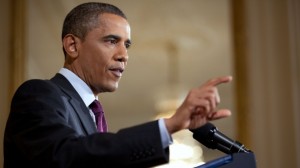By Ross Parker
ticklethewire.com
This column recently presented the historic changes made by the Obama Administration to change the direction of drug enforcement, drug offender punishment and treatment for drug abusers. For the first time in four decades the executive branch has embarked on a systematic and multi-front program to reduce the penalties for convicted drug traffickers.
But it has also provided a program for early treatment of drug users who previously were limited to emergency rooms after overdoses followed by expensive hospital stays and limited rehabilitation.
One of the methods used by the President to affect the punishment scheme has been to wield his pardon and commutation power. President Obama has already set records by his commutation policy with 185 reduced sentences, 171 of which were in 2015, more than the combined number of the previous five Presidents combined. Most of those grants have involved convicted drug traffickers serving long term prison sentences. The offenders chosen had little or no history of violence and were not repeat offenders.
Article II, section 2 of the Constitution, Clause 1 provides: The President…shall have Power to grant Reprieves and Pardons for Offences against the United States, except in Cases of Impeachment. The President’s clemency authority stems from the practice of Anglo-Saxon Kings to pardon, and it has not been seriously challenged either by Congress or the courts since it was included in the Constitution over two hundred years ago. It is now firmly ingrained in American public policy.
Executive pardons and commutations are sometimes confused. Pardons are an expression of forgiveness by the President which removes the effects of a conviction, such as civil disabilities like voting, holding office or possessing firearms. Commutations, on the other hand, do not affect the conviction and only reduce sentences. The civil disabilities remain in effect. For example, a pardon can remove the legal basis for immigration deportation whereas a commutation will not.
Not since the period of 1919-1923 under the administrations of Presidents Wilson and Harding have substantial numbers of commutations been granted. During the period of 1986 to 1998 only 6 commutations were granted. Only President Johnson of the modern Presidents regularly used commutations under his executive clemency power. Other Presidents have used it sparingly: Nixon (60), Ford (22), Carter (29), Reagan (13), H.W. Bush (3), Clinton (61), Bush (11).
Now there is reason to believe that the final year of Obama’s Presidency will witness unprecedented numbers of commutations and pardons, potentially thousands, a total which will exceed any action in American history. Over 19,000 commutation petitions have been received, as many as the previous eight Presidents combined. The private pro bono group The Clemency Project is presently reviewing tens of thousands of additional petition requests for potential submission to the Office of Pardon Attorney in the Justice Department.
This onslaught is largely the result of DOJ’s announcement in April 2014 of an initiative to encourage qualified inmates to file petitions to reduce their sentences.
In 2015 President Obama spread his message of drug penalty reform to an Oklahoma prison, the first sitting President to make such an appearance. Petition requests are conditioned on a record of non-violence, a likelihood of a lower sentence under recent legislative and Sentencing Commission changes, a low-level role without significant ties to criminal organizations, gangs or cartels, custody for at least 10 years, and good conduct in prison.
DOJ recently announced an intention to hire 16 new Attorney Advisors (salary range $92,145 to $141,555) for the Office of Pardon Attorney to help process the clemency petitions and prepare recommendations to the Deputy Attorney General and the President. This move demonstrates what a high priority the initiative has in the Department and the Administration.
Criticism of Obama’s plan comes from various law enforcement and GOP sources. The President of the National Association of United States Attorneys considers his drug “reform” measures to be inconsistent with the long term security of the country. House Judiciary Committee Chairman Bob Goodlatte complained to the Attorney General that the initiative is unconstitutional, a “blatant usurpation of law making authority of the legislative branch.”
It would not be surprising for there to be legal action against the President’s plan. But it is doubtful that a court would eventually interfere (although there is some authority in dictum by Chief Justice Burger in the 1974 case of Schick v. Reed that pardons which violate other provisions of the Constitution could be invalid). However, any stay ordered by a federal judge in connection with a civil action could affect the President’s timetable. He has almost exactly one year, January 17, 2017, when the new President is sworn in, to take action.
Expect a staggering number of inmate releases in the next twelve months through commutations, probably several thousand, by far the largest number in U.S. history. Plus over 8,000 releases of inmates as a result of re-sentencing after the Obama-initiated changes by the Sentencing Commission of the Sentencing Guidelines. The combined effect will be one of the most spectacular actions by a President in the waning days of his presidency.
Whether the policy will ultimately be beneficial to the public or a dangerous miscalculation will be much debated by historians and in early morning diner klatches around America for years to come.






